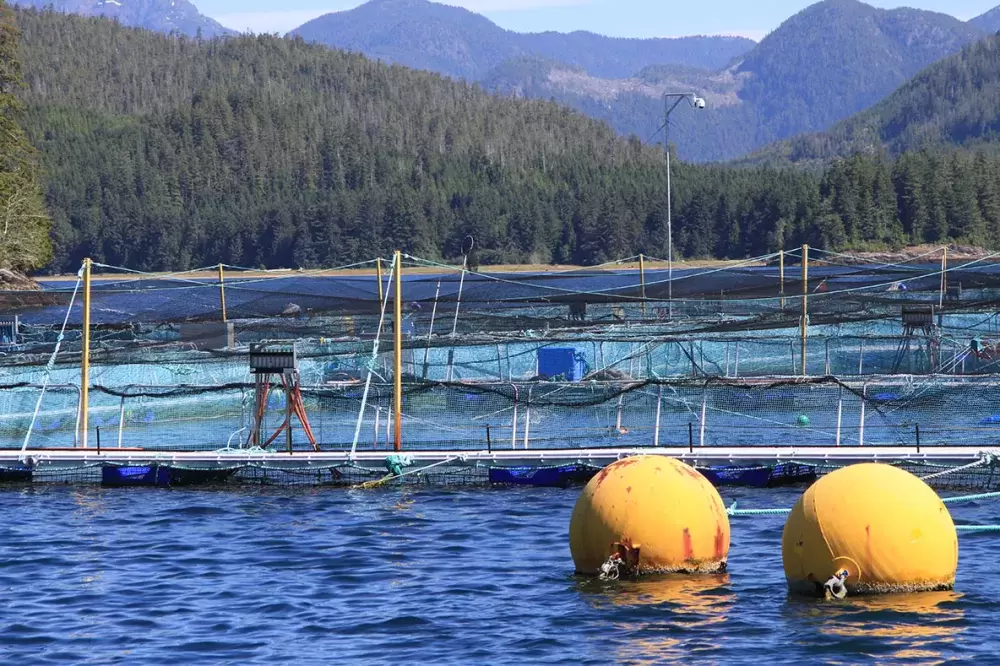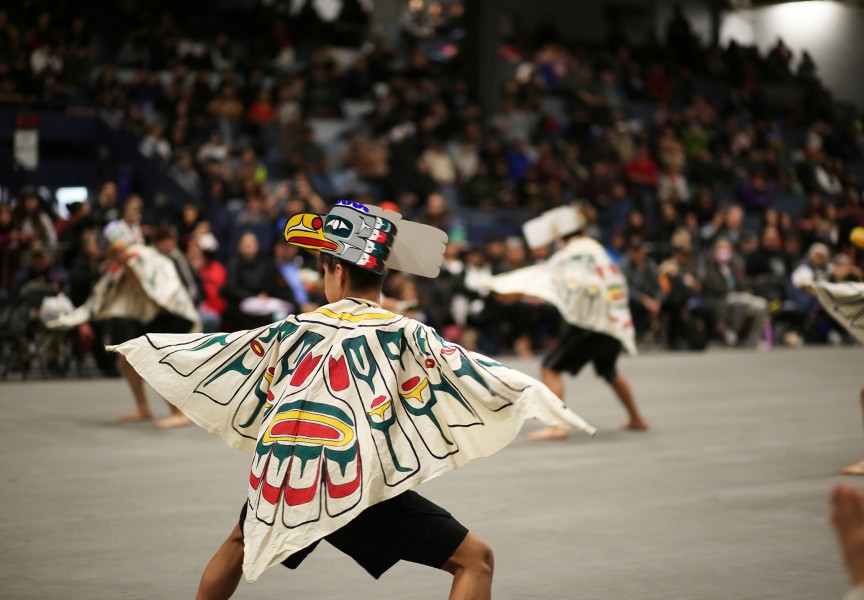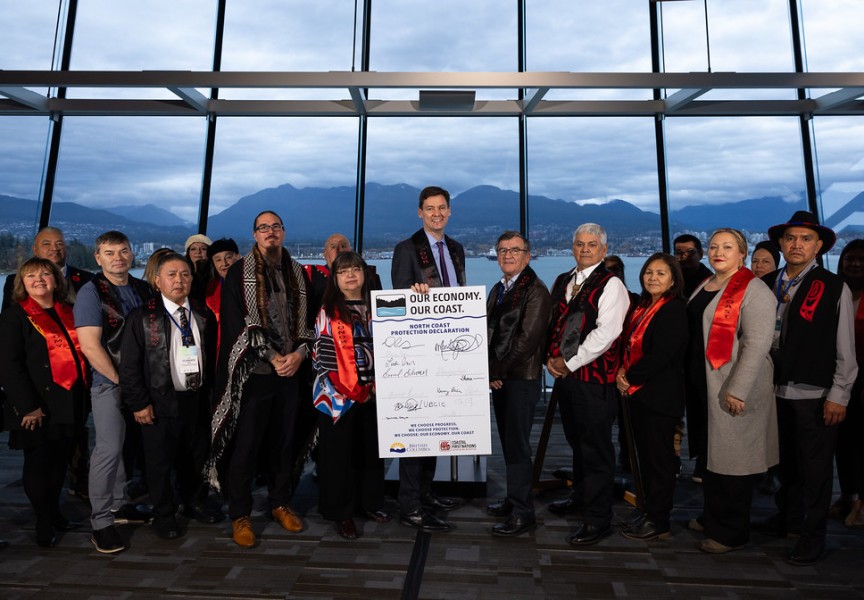The provincial government is introducing “rigorous” new standards for the aquaculture industry as the majority of fish farms on the B.C. coast are up for license renewal in 2022, declares Minister of Agriculture Lana Popham.
On June 20 the government announced that, as of June 2022, the province will only grant or renew fish farm tenures to operations that can demonstrate agreements with local First Nations. The recent provincial announcement also ruled that aquaculture operators must convince Fisheries and Oceans Canada that their farm sites do not adversely affect wild salmon.
These new standards follow recommendations from a provincially-appointed advisory council, which released a report in April stressing the need for fish farm tenures to only be granted with the approval of local First Nations. This 20-member advisory council included representation from Nuu-chah-nulth nations.
“We’re establishing rigorous new rules and expectations for any new or renewed farm tenures in British Columbia,” said Popham during a press conference. “Fish farms are unique, with impacts that are very difficult to contain. We acknowledge that many factors are affecting wild salmon, and one of them is fish farms.”
These new standards represent an attempt by the province to more closely regulate a West Coast industry that was given federal jurisdiction in 2010. Before then the provincial government was responsible for managing most aspects of aquaculture, including licencing and compliance enforcement. But in 2009 a B.C. Supreme Court decision identified aquaculture as a fishery, giving the federal government the authority to issue or deny operating licences.
The province still grants tenures for a DFO-approved fish farm to operate under B.C.’s Land Act.
“We expect Ottawa to fulfill its obligation to protect wild salmon, and I have discussed this with [fisheries] Minister Leblanc, and it’s my understanding that there is a renewed federal commitment to do so,” said Popham. “The challenges facing our wild salmon have been ignored for far too long.”
Leading up to the June 20 announcement, 20 sites due for licence renewal in the Broughton Archipelago hung in the balance. Now these tenures will be renewed on a month-to-month basis until the new standards come into effect in 2022, but history has shown that meeting these new regulations could be a challenge for the aquaculture operators in this area. The Broughton Archipelago lies within the traditional territory of the Musgamagw Dzawada’enuxw Nation, which has opposed fish farms for the last 30 years. On Aug. 23, 2017 members of the First Nation boarded a Cermaq farm in the area.
On the following day a group led by Ernest Alfred occupied a Marine Harvest site in the area.
“I am grandson of the Namgis, Lawit’sis and Mamalilikala Nations, this farm is in my house,” stated Alfred during the occupation. “The sheer amount of disease and wild herring in the pens is out of control! We have no food fish again this year, our wild salmon runs are collapsing and the salmon farming industry is a herring fishery that no one knew about! Enough!”
In December of last year an injunction from the Supreme Court of B.C. ordered occupiers to stay away from the Cermaq site in the Broughton Archipelago.
“It is our responsibility to ensure our employees’ working environment is safe, and they must be able to conduct business without unauthorized visitors entering the site”, said David Kiemele, Cermaq Canada’s Managing Director.
On the west coast of Vancouver Island, where three companies hold 33 tenures under provincial law, aquaculture relations with local First Nations have appeared to be more positive in recent years. Cermaq has an agreement with the Ahousaht First Nation to operate fish farms in its territory. This includes employment opportunities, grants for the First Nation, scholarships and other community assistance. One of Cermaq’s 17 tenures on the west coast of Vancouver Island is month-to-month, while the others don’t expire until 2026 or later.
Creative Salmon holds six tenures near Tofino that don’t expire for at least another decade. The company’s protocol agreement with the Tla-o-qui-aht First Nation stipulates that only chinook salmon will be farmed – not the Atlantic species commonly used in aquaculture – with minimal pen density, no antifouling agents used on the nets nor underwater lights at night.
The agreement also requires a committee to meet regularly about the aquaculture in Tla-o-qui-aht territory, and this group determined that action was needed when news broke that fish processing waste was being spewed into the ocean in November.
“We discussed some changes that were made immediately to significantly reduce the amount of water and particulates being discharged and had a tour of the plant,” said Tla-o-qui-aht Natural Resources Director Saya Masso in a joint statement from the First Nation and Creative Salmon. “We also discussed the various options and technologies available for treatment of effluent.”
In northern Nuu-chah-nulth territory, Grieg Seafood holds tenures for 10 sites. Two of these expire in the spring of 2020, while others last until 2026 or longer.
The BC Salmon Farmers Association advocates for the $1.5-billion industry, which employs 6,600 people – approximately 20 per cent of which are First Nations. In a statement from the association, spokesperson Shawn Hall noted that the BCSF was not consulted before the province announced the new requirements for fish farms.
“The change in consultation requirements appears to be significant,” he said. “We haven’t been involved in discussions about this change nor asked for any feedback on how it might impact our members, so need some time to consider it before commenting further.”
According to the association, an average of 70 per cent of the salmon harvested in B.C. each year come from fish farms.







